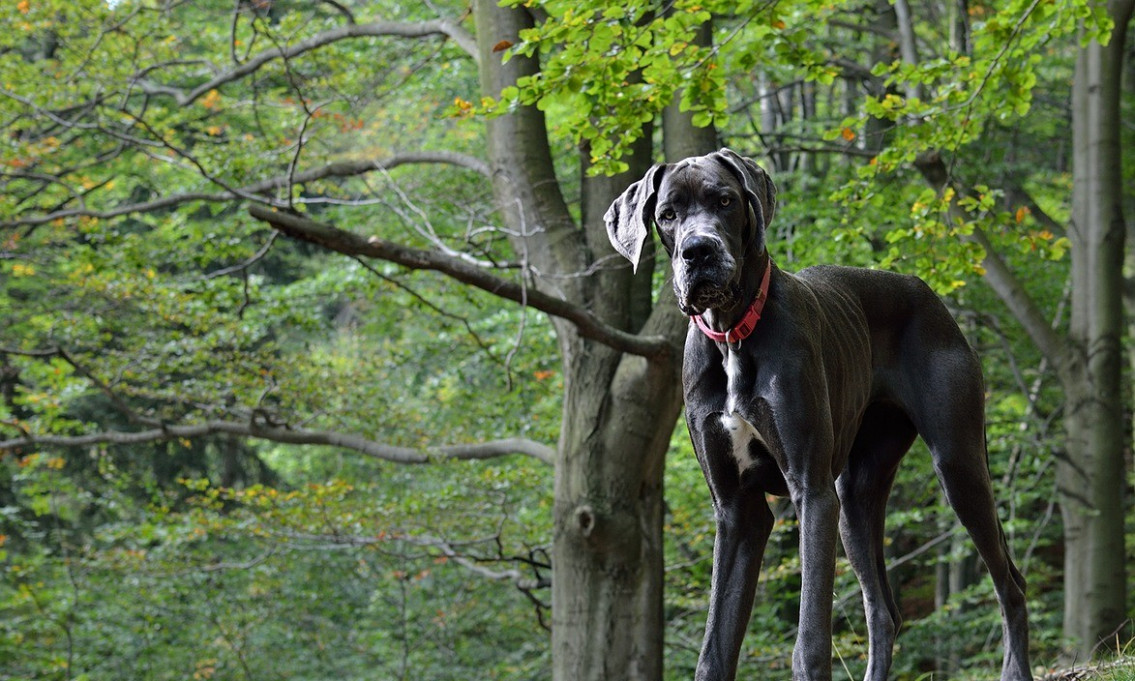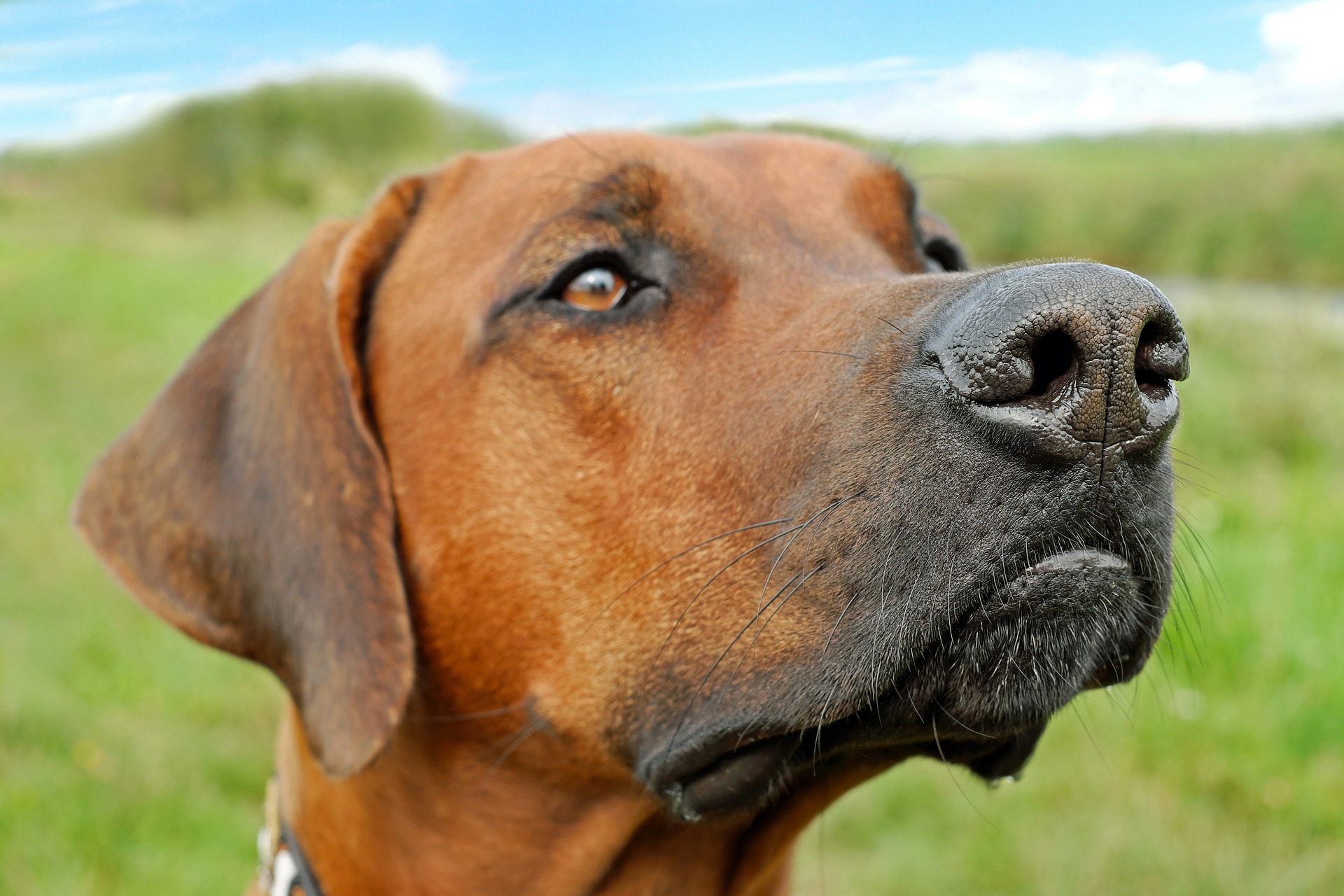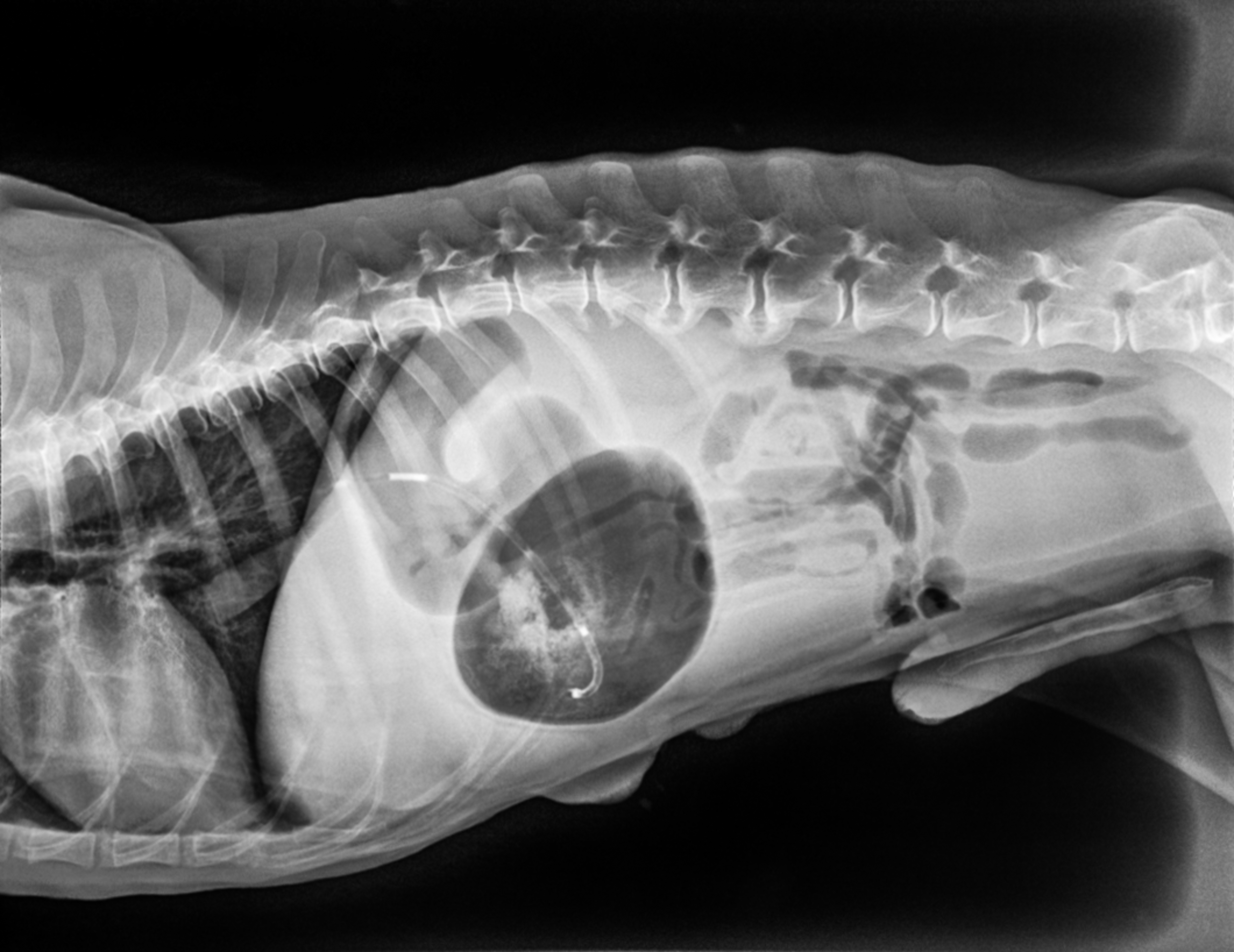Do you need help?

Bloat in dogs: the facts
- Bloat in dogs is an extremely serious, life-threatening condition which requires urgent veterinary treatment.
- It occurs when a dog’s stomach twists and expands with gas.
- Call your vet or, out of hours, nearest Vets Now pet emergency clinic immediately if you are worried your dog is suffering from bloat.
- It is also known as gastric torsion, gastric dilatation volvulus or GDV.
- It’s not clear exactly what causes bloat in dogs but eating large amounts of food soon before or after exercising may be a factor.
- Signs of bloat in dogs include restlessness, faster or more laboured breathing, drooling, unsuccessfully trying to vomit and abdominal bulging
What is GDV, or Bloat, in Dogs?
What is bloat in dogs?
Bloat in dogs is a life-threatening condition where the stomach twists and expands with gas. It is also known as gastric torsion, gastric dilatation volvulus, or canine GDV and it is one of the most serious pet emergencies. No one knows exactly what causes GDV in dogs but there are certain risk factors that make it more likely, particularly eating a large meal very soon before or after exercising.
If you are worried that your dog is suffering from bloat call your local vet or, out of hours, your nearest Vets Now pet emergency clinic right away. Bloat in dogs is an emergency that can’t wait.
What happens when a dog has bloat?
The distended stomach presses on the diaphragm and other internal organs, causing problems with the circulation and respiratory system. This makes it difficult for your dog to breathe and for their heart to get blood and oxygen around the body, as it should. Your dog will very rapidly go into shock. While the stomach is twisted, the blood supply to the stomach and also sometimes the spleen is affected meaning that the stomach wall and spleen can start to die.
Can a dog survive bloat without treatment?
GDV is one of the most serious of all pet emergencies. If left untreated, dogs with GDV will almost certainly die. However, the survival rate of dogs who undergo surgery after being diagnosed with GDV is as high as 80%, which is why it’s vital you contact your vet if you suspect your dog has bloat.
What are the causes of bloat in dogs?
Emergency vets are uncertain about what causes GDV. It’s often seen two to three hours after a meal, particularly when the dog ate a lot of dry food and then followed it up either by drinking considerable amounts of water or by strenuously exercising. There is, however, no scientific evidence to support this theory. There is also a theory that GDV is caused by a sudden change in the rhythm of a dog’s stomach contractions which results in trapped air and the stomach expanding.
What breeds of dog are prone to bloat?
While all dogs, both male and female, can suffer from GDV, it is much more likely to occur in large, deep-chested breeds such as German Shepherds, Dobermans, Saint Bernards, Great Danes and Setters. Weimaraners, Standard Poodles and Bassett Hounds are also in the high-risk category. Studies have shown the risk of GDV increases with age and is five times more likely in pure-bred dogs than in crossbreeds. Body weight is also strongly associated with increased odds of GDV. Dogs weighing more than 40kg are significantly more likely to suffer from the condition than those weighing less than 10kg.
What are the symptoms of bloat in dogs?
Some of the early signs of GDV include a change in behaviour or restlessness, increased breathing rate or effort, excessive drooling, vomiting white froth or trying, unsuccessfully, to vomit. A dog with GDV is likely to feel pain if you press on their belly, and as the condition progresses, you may notice your dog’s abdomen become enlarged, their gums become pale and their heart rate increase. It’s also possible they may collapse.
How do you treat bloat in dogs?
GDV cannot be treated at home. It’s a serious emergency condition that requires hospitalisation and expert veterinary treatment. Treatment usually consists of fluids (a drip) to counteract shock and, sometimes, gastric decompression. Once your dog is stable they will need surgery to return the stomach to its correct position. A gastropexy (in which the stomach is attached to the body wall) will be performed to hold the stomach in the correct position. Your dog’s spleen will also be examined and may need to be removed if it’s been damaged. Various other tests, including blood tests, are likely to be performed, as complications such as heart irregularities and blood clotting problems following GDV are common.
If you suspect your dog has GDV it’s imperative you seek immediate veterinary treatment. Success rates decrease the longer the delay in starting treatment.
What does GDV stand for?
GDV stands for gastric dilatation and volvulus. It is more commonly known as bloat but is also regularly referred to as gastric torsion, canine GDV or simply gastric dilatation.
How do you stop a dog's stomach from twisting?
To prevent GDV, try feeding your dog two or three smaller meals rather than one big daily meal. Avoid stress and don’t exercise your dog straight after feeding. If your dog has GDV, your vet can perform a gastropexy during surgery. This attaches the stomach to the abdominal wall, so the risk of it twisting again is reduced (though it can still happen).
What happens when a dog's stomach flips?
The stomach expands from an accumulation of gas or fluid. It then rotates from 90° to 360° in a clockwise fashion. This displaces what’s called the pylorus (part of the stomach) which, in turn, entraps the duodenum (part of the small intestine).
Which dog breeds get bloat?
Bloat primarily affects large and giant-breed dogs but it can and does occur in smaller breeds too. Those most at risk include the Great Dane, German Shepherd, Irish Setter, Gordon Setter, Weimaraner, Saint Bernard, Standard Poodle, and Bassett Hound. Older dogs are at greatest risk although sex doesn’t appear to matter. Dogs with a lean body and deep chest are also more likely to get the condition.
Can a dog live with bloat?
No, gastric dilation and volvulus (GDV) is an acute, life-threatening condition which requires immediate medical and surgical intervention.
How long should a dog wait to run after eating?
There are no hard and fast rules about when a dog should exercise after eating but there is evidence to suggest dogs are more likely to suffer from bloat if exercised on a full stomach. To be safe, you should try to exercise your dog before meal times or, if that’s not possible, wait for at least an hour before doing any vigorous physical activity with them.
Why is my dog's stomach making noises?
Abdominal rumblings are known as borborygmi and, as is the case in humans, they’re often down to simple things like hunger, wind or food digestion. These noises may, however, also be the early signs of a serious gastrointestinal problem so keep an eye on your dog and contact a vet if they’re accompanied by other symptoms such as lethargy, vomiting or drooling.
Can dog bloat resolve on its own?
Bloat is a serious veterinary emergency that requires urgent treatment. Thankfully, our own data reveals there’s an 80% survival rate in dogs who undergo surgery. If you’re worried your dog has bloat, you should contact your vet straight away or, if it’s out of hours, your nearest Vets Now pet emergency service.
How long does bloat take to kill a dog?
While bloat can kill a dog within minutes, it can also last for hours before torsion occurs.
Can dog food cause bloat?
Once-daily feeding, dry food, and rapid consumption of food have all been quoted as predisposing factors of bloat in dogs. In one study, published in 2006, high-risk breeds fed dry foods that list oils, such as sunflower oil and animal fat, among the first four label ingredients were also at a greater risk of GDV.
Can puppies get dog bloat?
While older dogs are most at risk from GDV, this does not mean puppies aren’t at risk. Large and giant breed puppies, particularly Great Danes, are susceptible to the condition.

What to expect after dog bloat surgery?
Dogs who have had surgery for GDV will typically be put on a drip and given pain relief. There’s also a strong possibility they will have an irregular heartbeat for a while. Less common postoperative complications in GDV cases can include sepsis, peritonitis, and blood clots.
Is dog bloat contagious?
No, bloat in dogs is not a disease so it can’t be transmitted to other dogs.
Is dog bloat hereditary?
Research suggests dogs with a first-degree relative with a history of GDV are more likely to suffer from the condition.
How common is dog bloat?
At the last count, cases of bloat accounted for just 0.64% of our emergency caseload which shows how rare it is. A separate study which followed 1914 dogs with no prior history of GDV found that the breed with the highest average lifetime likelihood of bloat is the Great Dane at 42%.
How much is dog bloat surgery?
The cost of surgery for GDV depends on a large number of factors, including the level of treatment your pet requires. We will always give you an estimate of costs before treating your pet.
Are German Shepherds at a higher risk of bloat?
German Shepherds are among the breeds most prone to bloat. Research by Dr Larry Glickman, of the Purdue University School of Veterinary Medicine, found German Shepherds had a higher than average risk of getting bloat.
What does dog bloat look like?
The image below shows an x-ray of a dog with bloat.

Also on this topic
How to avoid bloat in dogs
Pay careful attention to your dog’s diet, feeding and exercise. You can help prevent your dog from developing GDV by feeding them small meals regularly through the day (rather than one large meal) and you should avoid exercising your dog immediately after feeding. Although not always recommended, gastropexy – surgical attachment of the stomach to body wall – may help reduce the risk of torsion. In some breeds, it can be done at the same time as routine neutering. Speak to your vet for further details.

